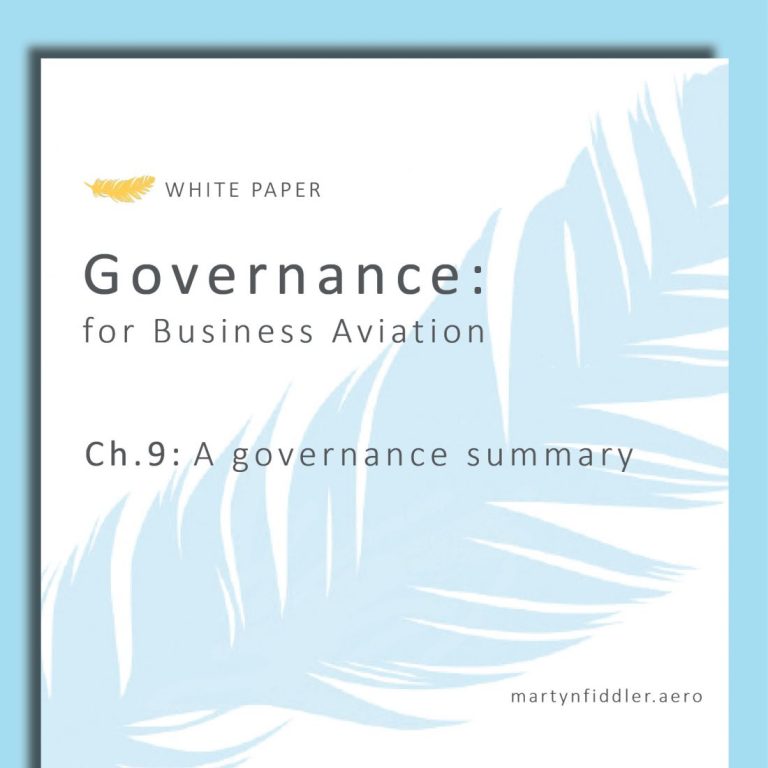
Why is there so much Poor Governance? The Good, The Bad, and The Ugly Reasons
Excerpt from Martyn Fiddler’s upcoming Governance Whitepaper
Why is there so much Poor Governance? The Good, The Bad, and The Ugly Reasons
05 Oct 2022
This week, we continue our conversation about Corporate Governance. In particular one key question: why is there SO MUCH poor governance?
The outcomes of poor corporate governance can result in extremes such as corruption, negligence, and fraud, or, more mainstream outcomes such as stunted business growth, repetitive complaints, and high levels of waste.
As all of these outcomes are undesirable to any business. But why are so many businesses bad at governance?
Education
It is well known that leadership and governance go hand-in-hand in any successful company. However, many leaders and directors did not start their careers studying or understanding business and governance, and they are now too busy ‘running the business’ to learn about it. As a result, there are many in leadership positions who are not aware of what governance really is and what they need to do.
The Quarterly Agenda
There is an unfortunate – and common – belief by many business leaders that if governance is included as an agenda item for board meetings, then it is effectively dealt with. This could not be further from the truth.
Good governance does not happen by chance. Good governance practices need to start with the board, and be cascaded throughout the business together with systems and processes to effectively communicate with all teams members.
The Governance Department
Some businesses see governance as a separate activity or the role of a certain department – for example compliance or legal. Good governance, however, is made by design and is certainly not a bolt-on activity. If governance is viewed as seperate it is almost always seen as a chore by the board and, as a result, by the business as a whole.
Delegation
While many businesses delegate governance processes and controls to managers and/or board committees, it is not possible to delegate all governance matters away from the board. Ultimately governance remains the responsibility of the board and they are accountable where it fails.
Failure to Look at the Bigger Picture
In many businesses, the board is made up of directors who have risen from management positions and have failed to delegate their operational tasks sufficiently. This often leads to board members being unable to dedicate portions of their time to the business as a whole, its future and what strategies are needed to create positive, long term change.
Friends and Family
It is established by law that directors should make decisions independently and without the influence of others. Unfortunately, the make-up of many boards, especially in smaller and older businesses, involve multiple family members and/or close friends, often with one or more dominating personalities.
This can have multiple negative consequences: directors may feel pressurised to make decisions to retain their employment, views are not challenged, confirmation bias and group think can occur, and new strategies can be ignored in preference to the ‘traditional way’.
These six explanations for why poor governance can occur are not exhaustive or exclusive to one another. In most cases a combination of these factors will lead to poor governance overtime if they are not recognised by the board and steps put in place to remedy them.
Week 4 Governance White Paper – Key Takeaways
- Poor corporate governance often occurs for a combination of reasons.
- Lack of understanding of governance has a trickledown effect throughout the business – if the board do not embrace governance it is unlikely the business as a whole will.
- Governance is the responsibility of the board collectively and cannot be delegated away; its requires time, attention and dedication at board level.
- All board members should be able to debate, discuss and challenge ideas openly and independently to avoid group think and confirmation bias.
See you next week for Week 5 of topics from our Governance Whitepaper.
If you wish to catch up on Weeks 1, 2, 3, from the Governance Whitepaper, click here: https://www.martynfiddler.aero/news/governance-whitepaper-
If you want to see more from Martyn Fiddler, please follow us on linkedin: Martyn Fiddler





